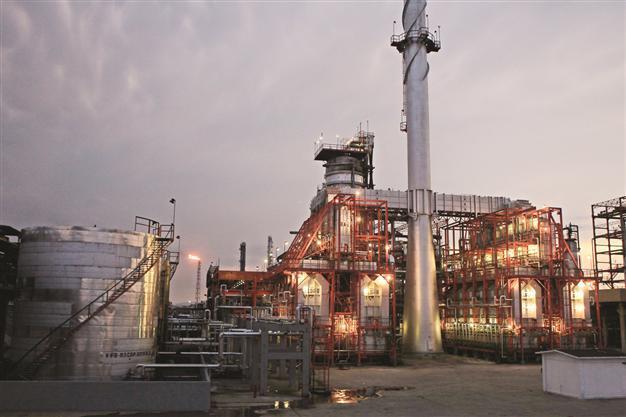Turkey’s gas trading hub dream realistic: Study
LONDON - Reuters

Turkey could boost its position as a natural gas trading hub thanks to gas storage facilities or pipelines that connects the country to giant gas suppliers of the region, a paper released by Oxford University says. REUTERS Photo
Turkey’s vision of becoming a gas trading hub is realistic given its diversity of supply but it would need to speed up market reform and invest more in gas infrastructure, an Oxford University study said on Feb. 10.Turkey has long wanted to have a major power and gas market, capitalizing on growing domestic demand for gas and its proximity to cheap natural gas resources.
It has few natural resources of its own, but is at the centre of nearly all gas pipelines that would link Central Asia to Europe, defining the regional market for decades to come.
Turkey’s rise to prominence in energy markets would also add to its growing influence as a major economic and political player between Central Asia, the Middle East and the European Union, to which Ankara aspires to be a member.
According to state pipeline company BOTAS, Turkish natural gas demand is forecast to grow to 81 billion cubic meters (bcm) a year by 2030 from the current 47 bcm/yr.
It could potentially trade up to 100 bcm of gas a year when large-scale investments in gas infrastructure have taken place, such as new liquefied natural (LNG) gas and storage facilities, said the paper by the Oxford Institute for Energy Studies.
Turkey could either become a physical gas trading hub with import and export pipelines, connected to other hubs via interconnectors, or a commercial hub with bilateral and broker-based trading.
To become either of these, Turkey needs to unbundle BOTAS’ transport and wholesale businesses and create a commercial energy exchange, the institute said.
An exchange market would provide a predictable pricing mechanism for banks and financial institutions. This would help to build confidence among foreign energy investors, who are needed to raise $100 billion of energy investment by 2023.
The development of a liquid gas trading hub will be difficult, however, as most gas coming into Turkey is traded under long-term contract, oil-indexed prices.
“For the hub vision to be realized, there needs to be sufficient spot gas traded in Turkey to form a reliable price index,” the study said.
“Suppliers would migrate from oil indexation to this traded price index for long-term contracts.”
















